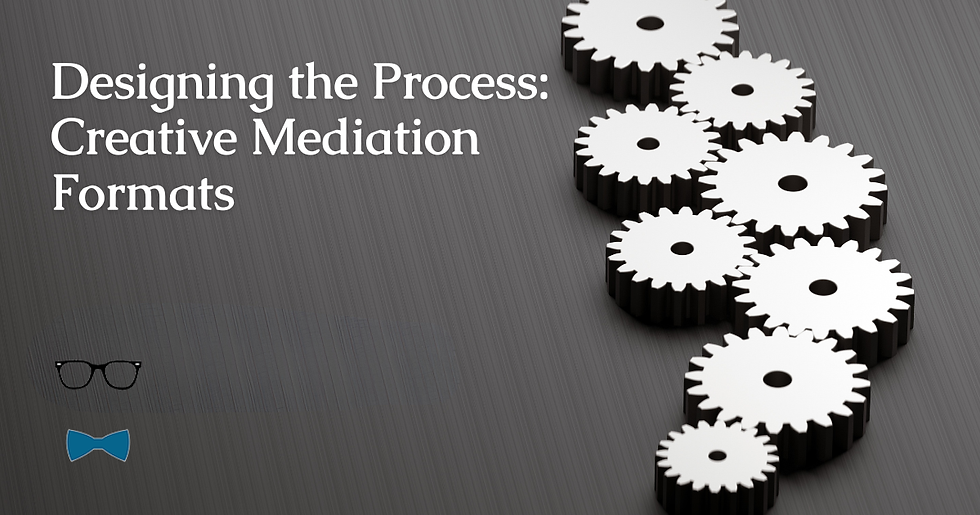Preparing the Mediator for Mediation
- Cooper Shattuck

- Feb 20, 2024
- 3 min read

Preparing for mediation is key to setting the stage for success. We have talked in previous blogs about how to prepare yourself and how to prepare your client for surety and construction mediation. Today, we address how to prepare the mediator. Ideally, a good mediator will prepare for the mediation. Of course, many just show up and fly by the seat of their pants. They may very well land the plane, but why not increase the odds of a positive result?
If the mediator doesn’t prepare on their own, or you aren’t sure whether they do, you can gently help them out. Don’t rely on a position statement to do it. Set up a time to chat with them.
Before the call, gather and prepare your thoughts and any documents to which you may need to refer, and give them the following information.
1. Confirm that the conversation is part of the mediation process and is confidential.
2. The parties and counsel.
Include your personal (and confidential) takes on every player. You can include things that you wouldn’t put in a position statement, such as their personalities, trigger points, hot-button issues, etc.
3. The claims.
Include all of them but give your honest assessment on those that have the most meat on the bone, both plaintiff’s claims and defendant’s defenses. Be as objective and honest as possible. This helps establish and build your credibility and your relationship with the mediator before any joint session (real or virtual).
4. The parties’ interests.
What are your client’s interests that will need to be addressed in any settlement? How would you prioritize them? Do you know what they are? Are some unclear? What about the other side? What do you perceive their interests to be?
5. Potential resolutions.
What do outcomes look like? What are realistic options? What options may be unreasonable, and why do you think so?
6. Logistics considerations.
Are there travel issues? Availability issues? Accessibility issues? Dietary restrictions? Where will the mediation take place? How will the mediation be conducted? How many rooms do you need and why? Who are you okay being in a room with? Will you need a separate breakout room?
7. The mediator’s plan and style.
Will she get the parties together for an orientation session? Does she plan on an opening joint session? Do you want one? What will it include? Who will she meet with first? Who should make the first offer (your opinion and why)?
8. Status of settlement discussions.
Update the mediator on any existing or prior settlement discussions.
9. Case-specific background, facts, technical aspects, etc.
If the mediator is not familiar with the industry or underlying facts, he might not readily admit, acknowledge, or ask about them during the mediation in the presence of the clients (and might not admit that to you). But he is more likely to ask you those types of question in this setting after you all have spoken about the case, and you have shared honestly with him.
10. What would the mediator like from you before the mediation and at the mediation?
Rather than assuming what the mediator wants, ask. While you have hopefully covered all that the mediator needs or wants, it’s a good idea to ask. If you send too much information, the chances of it receiving a meaningful review lessens. But sending a mediator what they want and all they want will help your relationship with the mediator whether he reviews it or not. And your chances that it will be reviewed go up significantly.



Comments